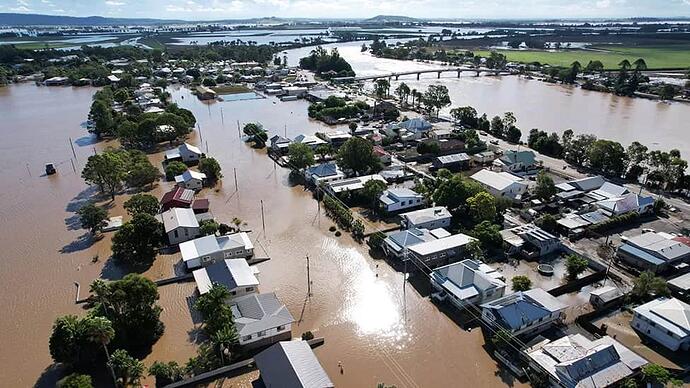Australian Prime Minister Anthony Albanese came to power last year promising the country would leave the climate “naughty corner”. Long considered a laggard, Australia would now cut emissions, become a renewable energy powerhouse and force the biggest polluters to clean up their act, the new leader declared.
It is now a year since he legislated Australia’s first ever emissions reduction target - so, has he delivered?
Australia is one of the world’s biggest polluters per head of population, and it has failed to make any significant cuts to its core emissions despite signing up to global pledges. But Australia is also a nation where the effects of climate change have become devastatingly obvious.
Australian climate change observations
Key points
- Australia is experiencing the effects of global climate change.
- Our average land and sea temperatures have increased.
- Despite large natural variation we are also seeing changes to rainfall patterns, increased fire danger, and rising sea levels.
- Most of the changes observed over recent decades will continue and worsen in the future.
In 2022 - the so-called “climate election” - there was a historic surge in support for candidates pledging urgent action, and the issue was a major factor in the demise of yet another prime minister, Scott Morrison, whose conservative government had been in power for nine years.
Mr Albanese’s government has enshrined into law an emissions cut target of 43% by 2030, up from 26-28%. That difference is equivalent to eliminating emissions from Australia’s entire transport or agriculture sectors. The government is also looking to incentivise emissions cuts on a consumer level, through things like an electric vehicle policy that is still to be detailed.
However, its new 2030 target is not enough to meet the Paris Agreement goal of limiting warming to 1.5C. The world has already warmed by 1.1C but experts say they’re optimistic that dramatic and rapid changes can still save the planet.
Critics are chiefly concerned that the government has refused to outlaw new coal, oil and gas projects. Australia is one of the world’s biggest fossil fuel exporters. The IPCC says new fossil fuel projects are not compatible with the aims of the Paris Agreement, and in fact, existing infrastructure must be urgently phased out. But the Australian government has already greenlit three new coal mine projects - including one just last week. (1)
Australia is one of the sunniest and windiest countries in the world, and is surrounded by seas which could be used for hydro-electric power. But currently only about 30% of Australia’s electricity comes from renewable sources - significantly below than the UK, for example, which is far less blessed with natural resources. Australia’s government has a lofty goal of making that 82% by the end of the decade. It envisages this will both drive down emissions and enable Australia to replace fossil fuel exports.
So while there is renewed optimism overall, so far there’s little actual progress in emissions cuts themselves. In reality, the country’s gross emissions have barely budged - dropping by just 1.5%.
(1) Too many vested interests … ![]()

